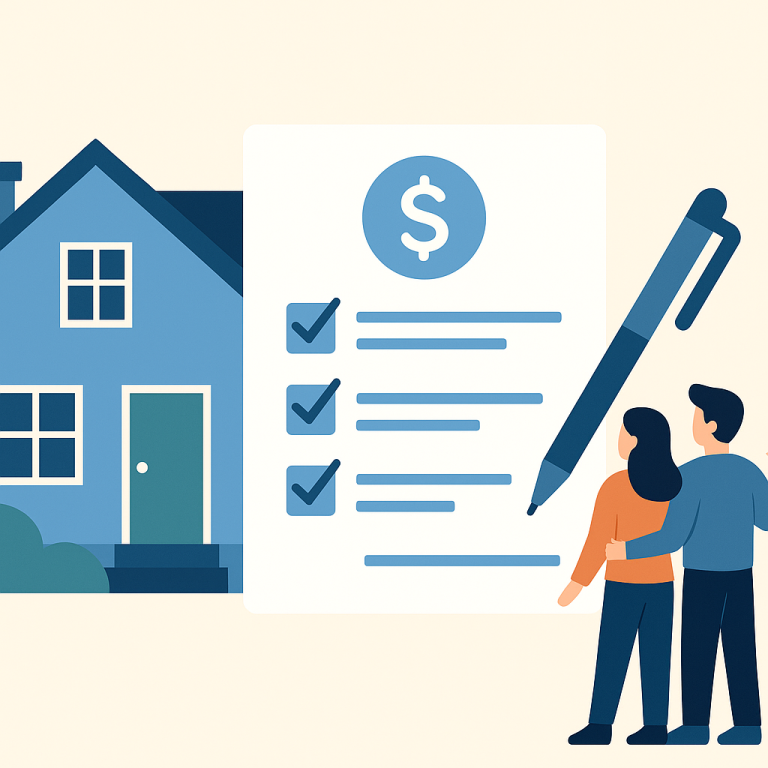Refinance guide Texas cash-out refinance rules Section 50(a)(6)
What Section 50(a)(6) cash‑out refinance is — and when it makes sense
Section 50(a)(6) refers to the Texas Constitutional rules that govern home‑equity and certain refinance loans on owner‑occupied homesteads. A Section 50(a)(6) cash‑out refinance lets a Texas homeowner refinance existing mortgage(s) and pull equity out of the home as cash while keeping the homestead as security for the new loan. It’s a common way to consolidate higher‑rate debt, pay for major home improvements, or access cash for large expenses.
This option makes sense when you want to:
- Replace existing mortgage(s) with a single loan and take additional cash.
- Lower your overall interest rate or monthly payment while unlocking equity.
- Consolidate higher‑interest consumer debt (credit cards, personal loans) into a potentially lower‑cost, tax‑advantaged mortgage loan.
Key legal features and eligibility (brief)
Under Texas homestead rules the loan must generally be on an owner‑occupied homestead (1–4 unit residential property). The most important limit homeowners should know is the combined loan‑to‑value limit: after closing, the total debt secured by the homestead ordinarily cannot exceed a specified percentage of the property’s fair market value (commonly explained as “up to 80%” in most cases). Lenders must follow strict disclosure and timing rules before closing.
Benefits and drawbacks
Benefits
- Access to substantial cash at mortgage rates, typically lower than unsecured credit.
- Ability to consolidate multiple liens into a single loan and simplify payments.
- Potential tax advantages — interest may be deductible for qualifying home‑improvement uses (consult a tax advisor).
- Longer repayment terms can reduce monthly payments compared with consumer loans.
Drawbacks
- Home is used as collateral — failure to pay risks foreclosure.
- Closing costs and fees can be high; taking cash out increases the amount owed and interest paid over time.
- Strict Texas rules mean a longer disclosure/waiting timeline than some other states.
- Depending on use of funds, there may be tax consequences and lost flexibility if funds are spent on non‑appreciating purchases.
Costs and fees to expect
Costs for a Section 50(a)(6) cash‑out refinance are similar to other mortgage closings. Typical items include:
- Appraisal fee — to establish current fair market value.
- Title insurance and closing/escrow fees — for lien searches and issuing a new title policy.
- Recording fees — to record the new mortgage and satisfactions of old liens.
- Lender fees — origination, underwriting, processing, points or discount charges if you buy rate.
- Prepayment penalties or payoff fees — only if your current loan has an enforceable penalty or payoff charge.
- Escrow for taxes/insurance — lenders may require initial deposits into escrow accounts.
Because Texas homestead statutes impose consumer protections, lenders must provide certain disclosures; these administrative steps can add time (and sometimes fees) to the process. Always obtain a Loan Estimate and Closing Disclosure and compare net proceeds after fees.
Step‑by‑step process
- Check basic eligibility: Confirm the property is your owner‑occupied homestead and that you meet income, credit and occupancy requirements.
- Shop lenders: Compare interest rates, fees, and maximum allowable cash‑out amounts. Ask whether the lender will close under Section 50(a)(6) rules.
- Apply and order appraisal/title: Submit an application and provide documentation (income, tax returns, existing mortgage statements). The lender orders an appraisal and title work to confirm value and existing liens.
- Receive disclosures and waiting period: Texas law requires specific disclosures and a waiting period between application and closing — plan for this extra time. You will also receive federal TILA disclosures and, in many cases, a federal 3‑day right to rescind a refinance.
- Review Loan Estimate/Closing Disclosure: Confirm the cash‑out amount, payoffs, fees, and your new monthly payment.
- Closing: Attend closing, sign documents, and fund payoff of existing liens. The lender records the new deed of trust and releases old liens.
- Post‑closing: Keep copies of all documents, verify that prior liens are satisfied in county records, and confirm escrow accounts are set up as expected.
Common pitfalls to avoid
- Assuming you can take unlimited cash — check the combined loan‑to‑value limit and how the lender calculates value.
- Not accounting for closing costs — they reduce net cash‑out and may make a refinance uneconomical.
- Failing to verify lien releases — ensure previous mortgages are fully released in public records after closing.
- Using cash‑out funds for high‑risk investments — this converts home equity into unsecured risk.
- Rushing and missing required waiting periods or disclosures — Texas and federal rules offer consumer protections but require time; skipping steps can delay or void a loan.
- Ignoring tax or bankruptcy implications — large cash infusions or changes to loan structure can have consequences; consult professionals when needed.
Short FAQ
Q: How much cash can I take out with a Section 50(a)(6) refinance?
A: The cash‑out amount depends on the property’s appraised value and the combined loan‑to‑value limit under Texas law. Lenders typically allow the total liens after closing to reach a commonly cited threshold (often up to about 80% of value). Your available cash is that limit minus existing lien payoffs and closing costs.
Q: How long does the process take?
A: Expect more time than a simple rate‑and‑term refinance. Appraisals, title underwriting, and the mandatory disclosure/waiting periods mean the process often takes several weeks from application to closing.
Q: Can I use the cash for anything?
A: Generally yes — Section 50(a)(6) cash‑out proceeds are not limited by purpose under the statute. However, how you use funds can affect taxes and affordability, and some lenders may ask the intended purpose as part of underwriting.
Q: Will this affect my homestead protections?
A: The loan is secured by your homestead, so nonpayment could lead to foreclosure. Texas homestead law provides strong consumer protections, but it does not prevent foreclosure for unpaid mortgage debt. Make sure you understand repayment obligations before taking cash out.
Before you move forward, get detailed quotes from multiple lenders, read all disclosures carefully, and consider consulting a qualified real estate attorney or tax advisor about your specific situation.
META: topic=Texas Section 50(a)(6) cash-out refinance; length=~1000 words; includes rules, benefits, costs, process, pitfalls, FAQ





